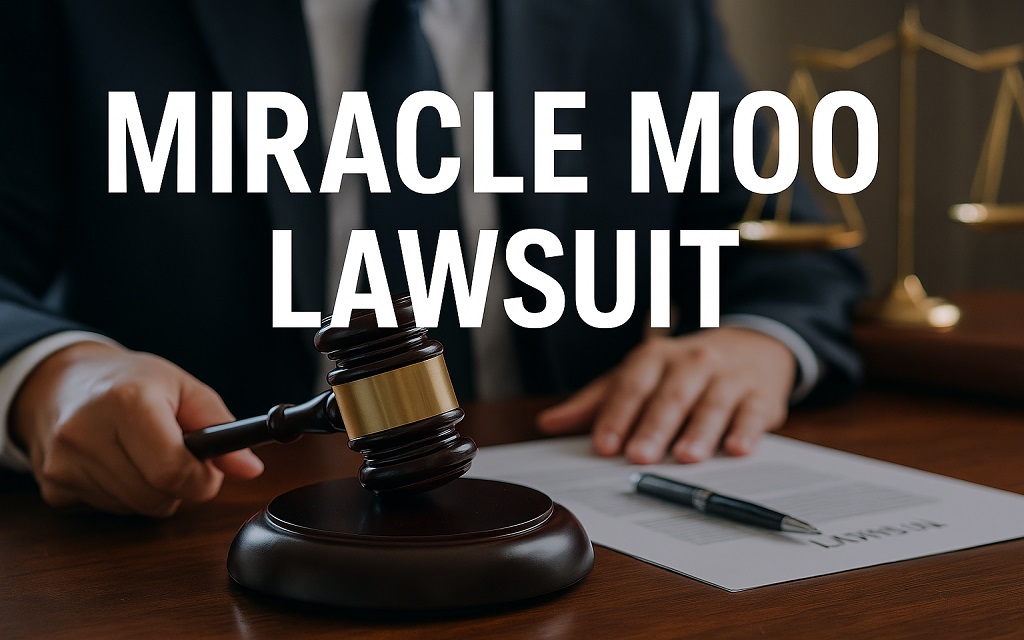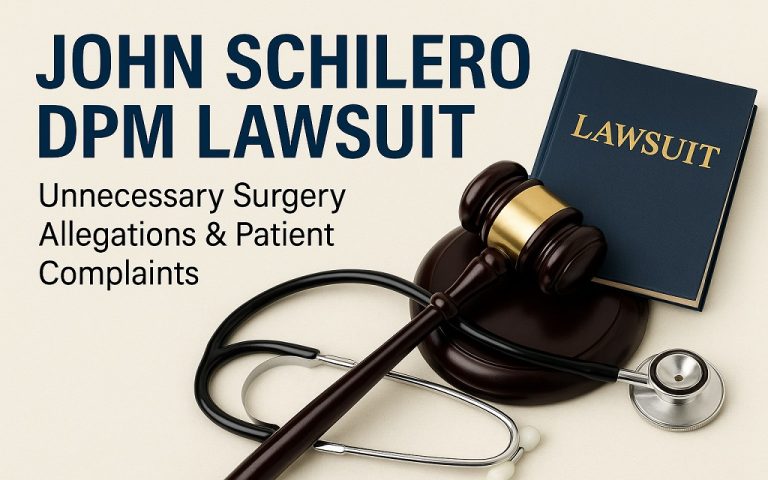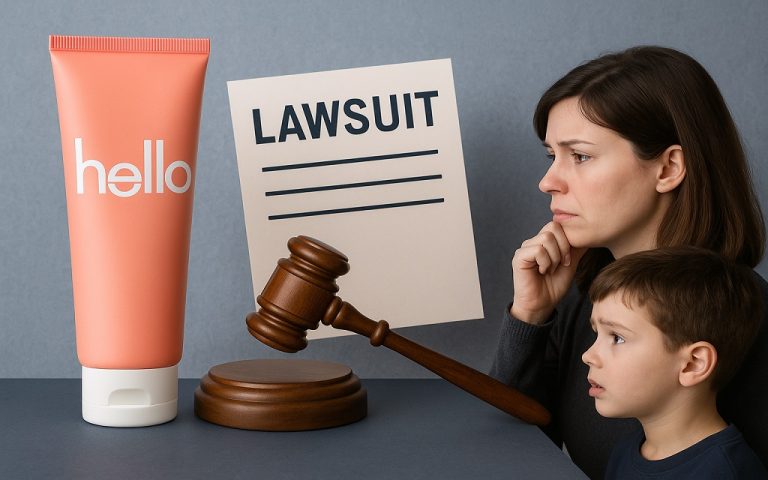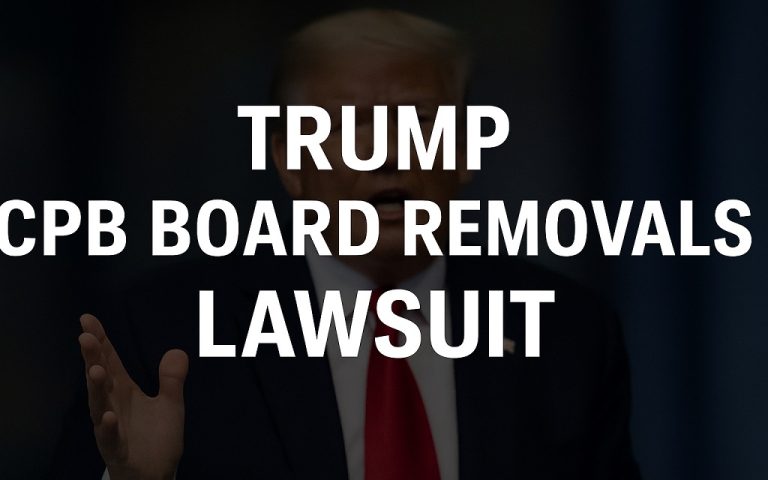This guide explains the Miracle Moo lawsuit clearly. You will see the case facts, the legal claims, and the current status. You will learn how courts view supplement advertising and also learn what the science actually says. Practical steps appear near the end. Each section stays focused and short.
This article offers information, not legal or medical advice. Specific questions should be directed to your own lawyer or clinician. Court filings and agency guidance provide key facts. The complaint outlines the claims. The order of dismissal confirms the later status. Federal guidance explains how health claims must be proven. Scientific reviews describe what colostrum can and cannot do.
Readers often ask one question. Did the case end? The answer appears below in detail. The short version says yes. The docket shows a dismissal after a settlement in principle. No public claims website appears in public records. The order closed the case unless reopened quickly. That deadline passed.
You can verify the status through public sources. The federal docket pages show basic milestones. A consumer watchdog posted the dismissal order. The complaint is also online. Agency pages describe the ad-claim rules. Independent journals cover the science.
Why Has Miracle Moo Been Sued in Federal Court?

The case name is Mosseri v. Miracle Moo, Inc. The court is the Southern District of New York. The civil number is 1:24‑cv‑03414. The filing date is May 2, 2024. The presiding judge is Jennifer H. Rearden. The plaintiff is a consumer named Joseph Mosseri. The defendant is Miracle Moo, Inc. The subject is supplement advertising claims.
Current Status
The docket shows a dismissal order dated July 9, 2024. The order followed a settlement in principle. The order allowed a short period to reopen. That deadline passed. The docket shows the case as closed. No class certification occurred. No court‑approved claims website appears in public sources today.
What That Means Now
The court ended active supervision. Private terms may exist between the parties. Public records do not show a class payout plan. Consumers cannot submit a claim on a court site. Buyers still may pursue direct refunds. Card disputes may help in some cases. Small claims may help where amounts justify the effort.
What Laws Did Miracle Moo Allegedly Violate?
The complaint includes the following legal arguments:
Core Phrases Challenged
The complaint targets phrases like “scientifically validated.” The complaint also targets “clinically dosed.” The ads implied proven benefits for adults. The benefits included immune support and gut health. The complaint argues the evidence did not support those promises. Reasonable consumers rely on science‑heavy language. Price premium theories often follow.
Drug‑Like Messages
The complaint says the claims resembled drug claims. Drug‑like claims demand higher proof. Supplements cannot claim to diagnose, treat, or cure disease. Clear boundaries protect buyers from confusion. Labels must reflect the product’s status. Bold health phrases raise risk when proof is thin.
Why This Matters
Courts examine the net impression of the message. Headlines often dominate the net impression. Disclaimers rarely undo bold headlines. Evidence must match the exact promise. Vague citations will not satisfy judges. Careful wording reduces exposure.
What Is the Controversial Use of Bovine Colostrum in Supplements?

Bovine colostrum may have been advertised as a natural superfood. It is derived from the first milk that cows make after birth. According to manufacturers, colostrum contains nutrients, growth factors, and antibodies that support the immune system. The scientific validity of these claims is called into question.
What Are the Health Claims Made by Miracle Moo?
According to the product website, Miracle Moo promotes benefits such as:
- Enhanced immunity
- Gut lining repair
- Nutrient absorption support
According to the lawsuit, there is insufficient research to support these health claims. It should be noted that no significant clinical trials have confirmed these results in people. The National Center for Complementary and Integrative Health states that there is little data to support colostrum’s use in humans.
Researchers found conflicting findings about the immunological properties of colostrum in a 2020 review that was published in Nutrients. Small human samples or animal models were used in the majority of investigations. Supplements that rely on preliminary data should be avoided.
What Occurs in a Case Like This Class Action?
The lawsuit began on May 2, 2024. The complaint alleged deceptive advertising and misbranding. The filing outlined claims under New York statutes. The filing also referenced nationwide consumer protection laws. The document attached marketing examples and allegations. It identified the product categories and sales channels.
A scheduling period followed the filing. The defense sought time to respond. The docket shows an extension order. That step is common in consumer cases. Parties often request time to evaluate issues. Courts often grant those requests. The record reflects that process. Justia Dockets & Filings
Negotiations then progressed. The judge received notice of a settlement in principle. The court issued the Order of Dismissal on July 9, 2024. The order dismissed the case without costs. The order allowed reopening within thirty days if needed. The clerk then closed the file. That ended active litigation on the public record.
Public dockets show no later reopening. No public, court-approved class notice appears online. Private settlements can end cases without public claim forms. Courts sometimes retain jurisdiction to enforce agreements. That did not occur here based on the order text. The order described the steps needed to retain jurisdiction. Those steps would require a filed agreement. Truth in Advertising
Which Time Period Is Important for Eligibility?
You should check the purchase period once the court defines it. The majority of consumer cases cover a particular time frame. The Prevagen supplement case, for instance, involved goods that were marketed between January 2012 and July 2020. That time frame helped buyers understand if they qualified.
You should know that Miracle Moo’s timeline may follow a similar pattern. The court may include all purchases made within the last three to five years. That period depends on the statute of limitations and the company’s marketing history.
It is essential to keep any proof of purchase. Even if you no longer have the product, records like online orders or bank statements can help. Strong documentation improves your chances of getting paid, but many class actions permit claims without invoices.
Do You Need to Hire an Attorney?
To enroll in the class, you do not need a personal attorney. The court appoints a lead law firm to represent the group. In this case, Gucovschi Rozenshteyn PLLC handles the legal representation. You should monitor their official updates for any filing deadlines.
You do not pay legal fees as a class member. The court awards attorney fees from any settlement fund. That structure protects consumers from out-of-pocket costs.
What Are the Alleged False Claims on the Miracle Moo Label?
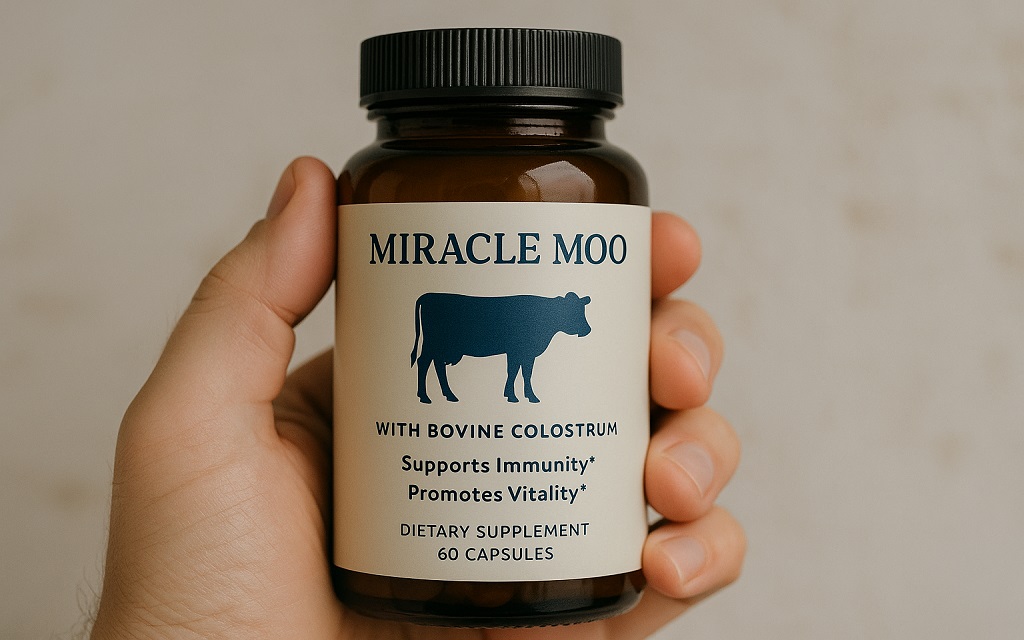
You need to go over the wording on Miracle Moo’s product box. The lawsuit targets particular terms that could deceive customers. These claims seem to imply health benefits that the business is not legally allowed to provide.
Which Product Statements Raised Legal Concerns?
You should know that the label includes phrases like:
- “Supports immune health”
- “Gut healing formula”
- “Natural therapy for digestive wellness”
According to the complaint, these statements suggest treatment or prevention. Under the FD&C Act, such wording might make the product an unapproved medication. You should know that unless the U.S. Food and Drug Administration (FDA) reviews them, dietary supplements may not have therapeutic claims.
The FDA requires supplement marketers to use structure/function claims. You may see phrases like “supports joint health” or “promotes better sleep” on other products. Those phrases are allowed when backed by evidence. However, regulatory activity may be triggered by terms that suggest healing or treatment.
More than 60% of immune-related supplements made ambiguous or deceptive claims, according to a 2023 study published in the American Journal of Health-System Pharmacy. Similar labels should be approached cautiously.
Does Scientific Evidence Support Miracle Moo’s Claims?
It is essential to question the clinical backing for these claims. The lawsuit argues that Miracle Moo lacks peer-reviewed studies. You should ask whether the product has undergone extensive human testing. The complaint claims that it hasn’t.
You should also take into account the paucity of studies on colostrum. Colostrum’s role in sports rehabilitation was examined in a 2021 study published in Nutrients. Results showed possible benefits for athletes but lacked relevance for average consumers. That weakens the credibility of health claims made to the public.
You should know that companies often cite animal studies or small-scale trials. Courts may reject those as insufficient. You should expect valid claims to rely on double-blind, placebo-controlled human studies.
How To Verify the Docket Yourself
You should expect courts to use the same standards for Miracle Moo.
Direct Court Sources
Search the case number on public docket tools. Check the filing date and the judge’s name. Look for the dismissal entry dated July 9, 2024. Read the text that mentions settlement in principle. Confirm the thirty‑day reopen window. Confirm no later reopening.
Reputable Aggregators
Complaint copies appear on reputable legal sites. The dismissal order appears on a consumer watchdog site. Docket mirrors appear on mainstream aggregators. These sources post PDFs or screenshots. You can compare the text against court entries. Matching text confirms authenticity.
Red Flags To Ignore
Avoid blogs that cite unsourced numbers. Avoid posts that promise payouts today. The docket shows no administrator. The docket shows no claims portal. Trust documents over commentary. Trust primary entries over summaries.
Laws the Complaint Invokes
These statutes care about net impressions. Fine print rarely rescues bold headlines. Scientific framing increases the needed proof. Words like “clinically dosed” carry weight. Courts often ask what studies actually show. They also ask how broad the promises read. That gap defines liability risk in many supplement cases.
New York GBL §349
This statute targets deceptive acts and practices. The standard uses a reasonable consumer lens. Plaintiffs must show materially misleading conduct. Plaintiffs must show injury from that conduct. Price premium theories can satisfy injury. Courts weigh the full marketing context.
New York GBL §350
This statute targets false advertising. Express and implied messages both count. Omissions can mislead as well. Scientific claims demand strong support. Evidence must match dose, duration, and population. Broad promises raise the bar.
Other State‑Law Theories
Complaints often add unjust enrichment. Some plead warranty counts as well. Federal drug law concepts appear through state law. Plaintiffs argue misbranding concepts to frame deception. Courts decide preemption questions case by case. Careful drafting avoids unnecessary risk.
Could You Receive Compensation in the Miracle Moo Lawsuit?
You should know that compensation in class action lawsuits depends on the outcome. If the court approves a settlement or if the plaintiff wins at trial, eligible buyers may receive a payment. You should prepare in advance to claim your share if you qualify.
How Much Compensation Can You Expect?
The exact amount will depend on several factors. These include the number of claims filed, the total settlement fund, and your documented purchases. You should keep in mind that class action payouts are often small. In most cases, consumers receive between $10 and $50. Larger payments require proof of significant purchase volume or receipts.
Similar to this case, a class action lawsuit involving supplement advertising against the makers of Prevagen in 2021 led to consumer payouts of up to $70. That should serve as a standard for potential results.
It is crucial to understand that any settlement must be approved by the court before payments can start. You should not expect compensation until the court finalizes the case. One to two years or more may pass during that process.
Lessons from a Vacated Settlement
An appeals court vacated a brain supplement settlement in 2023. The court found standing problems for injunctive relief. Named buyers did not plan to repurchase. The panel required a real risk of future harm. The case returned to the district court.
Why It Matters
Settlement structures must align with standing. Injunctive relief demands an eligible representative. Drafting must reflect constitutional limits. Courts will test those details. Litigants should plan for that analysis early. Consumers should manage expectations about relief timelines.
Takeaways for Readers
Closed cases may not produce payments. Portal links should come from official notices. Updates can change paths quickly. Keep records even when a case closes. Private resolutions can address labeling changes. Public class funds require court approval.
Buyer Options Right Now
Here are some practical options for buyers to follow.
Start With the Seller
Contact customer support. Request a refund or store credit. Include your order number and date. Attach receipts and screenshots. Cite the closed case briefly as context. Ask for a response within seven business days.
Escalate If Needed
Consider a credit card dispute after a failed request. Provide proof of claims you relied on. Attach product photos and batch codes. Include chat logs or emails. Keep your message calm and factual. Issuer rules set dispute windows.
Consider Small Claims
Amounts and rules vary by state. Prepare a clear timeline. Attach exhibits that show promises and reliance. Keep testimony precise and neutral. Ask the clerk about filing steps. Consider local clinics for brief advice.
The dismissal order and what “settlement in principle” means
The judge issued a one-page Order of Dismissal. The order stated that parties reached a settlement in principle. The court dismissed and discontinued the action. The order allowed reopening within thirty days. The order also explained enforcement jurisdiction. The court would need a filed agreement to retain jurisdiction. The clerk then closed the case.
A settlement in principle means agreement on key terms. Parties often finalize language after that step. Many cases end there without public details. Court dockets sometimes include the final agreement. That happens when parties file it for enforcement. This order signaled a different path. The text said the court would not retain jurisdiction automatically. The order required a filed agreement for that step.
Public records show no later filing that reopened the case. No claims website appears on the public record. No administrator announcement appears in public sources. Private settlements are common in single-plaintiff cases. Class settlements require notice and approval. This docket shows no class notice process. The order thus likely ended the matter privately. pacermonitor.com
How class actions prove deception
Plaintiffs must show a deceptive message. They must show reliance or materiality. They must show an economic loss. Price premium theories often apply. Experts estimate the premium from ads. Surveys can model consumer responses. Regressions can link claims to prices. Sales data can show demand shifts. Courts require rigorous methods. Plaintiffs also address standing. Named buyers must show personal harm. They must show traceable injury from ads.
Advertisers defend on several fronts. They argue the messages were puffery and the science supports claims. They argue disclaimers cured any confusion and argue buyers did not rely on claims. Also, they argue damages models are flawed. Judges assess evidence at each step. Motions to dismiss test the pleadings. Class certification tests common issues. Daubert motions test experts. Summary judgment tests the merits. Trials resolve remaining disputes. Many cases settle before trial. Settlement terms often adjust claims and labels.
Practical steps if you purchased Miracle Moo
You should see a trend here. When a supplement claims to treat or prevent health conditions, courts expect strong evidence. If companies fail to deliver, they may face costly legal battles.
Receipts help in any future process. Keep invoices, emails, and screenshots. Save purchase dates and lot numbers if available. Note where and when you saw specific claims. Keep links or captures of pages you relied on. That record makes future steps easier.
Concerned buyers often contact the seller first. A clear, brief message works best. State what you bought and when you bought it. State the claims you relied on at purchase and the outcome you experienced or did not see. Ask for the company’s refund policy. Keep all replies for your records.
Refund Message You Can Use
Email Subject
Refund request for Miracle Moo order #12345.
Message Template
Hello, I purchased Miracle Moo colostrum on March 5, 2024. The product page promised clinically dosed, scientifically validated benefits. I did not experience the stated results. Please refund my purchase to the original payment method. My order number is 12345. I attached my receipt and screenshots. I can return the product if needed. Please confirm within seven business days. Thank you.
Follow‑Up Tips
Save all replies as PDFs. Set a reminder to follow up. Stay polite during each exchange. Close the loop after resolution. Share accurate feedback when the issue ends. Keep your records for future reference.
How Can You File a Claim or Stay Updated on the Case?

You should prepare to act if the lawsuit moves forward. Filing a claim and staying updated are two separate but essential steps. Each one helps protect your rights as a consumer.
Decide If It Is Worth It
Calculate your purchase total. Add shipping and taxes. Add any incidental costs. Weigh filing fees and time. Decide based on net value.
Prepare Your File
Create a single folder for evidence. Add receipts and order emails, screenshots of the product page. Add photos of labels and batch codes and a short narrative timeline. Number each exhibit for easy reference.
Court Day Tips
Dress neatly and arrive early. Bring two copies of your packet. Speak slowly and stick to facts. Point to the exact exhibits. Ask only for what the law allows. Thank the court at the end.
How Can You Monitor the Case for Updates?
You should follow the law firm managing the lawsuit. In this case, the firm is Gucovschi Rozenshteyn PLLC. Their website may include a case summary, necessary filings, and a contact form for inquiries. You may also sign up for email alerts.
You should also check legal news sites like:
- TopClassActions.com
- Law360.com
- ConsumerAdvocate.org
Each site tracks active class actions across the U.S. These sites often publish notices and updates when courts issue rulings or settlements are proposed.
You may also access PACER, the federal court docket system. The public can search PACER by party name or case number. Note that there is a minor access cost for PACER.
Recordkeeping Checklist
You should do these small efforts to keep the records.
Documents To Save
Receipts from online or store purchases. Order confirmations and shipping notices. Bank statements that show the charge. Photos of labels and packaging. Screenshots of ads and landing pages. Chat logs with support agents. Notes from calls with dates and names.
How To Organize
Use clear file names with dates. Store PDFs in a single folder. Back up the folder in the cloud. Keep a paper copy if possible. Update the folder after each step. A tidy record saves time later.
Medical Notes
Write down any side effects. Include dates and short descriptions. Consult clinicians for unusual symptoms. Save bills and advice notes. Report serious events to regulators. Safety comes first in all cases.
Guidance for Brands and Agencies
Build a Claims Matrix
List every claim across labels and pages. Map each claim to exact evidence. Score strength as high, moderate, or emerging. Remove or qualify weak items. Align dose and form with studies. Track product changes over time.
Train the Team
Teach copywriters the rules. Teach influencers the rules. Give affiliates approved scripts. Review social posts before they go live. Monitor comments for risk. Refresh training each quarter.
Process and Governance
Create approval gates for all copy. Archive each version with dates. Assign owners for each asset. Run periodic audits across channels. Reward teams that catch risks early. A steady process prevents surprises.
Lessons from the Neuriva settlement setback
A related brain supplement case faced a setback. An appeals court vacated a class settlement in 2023. The panel found standing problems on injunctive relief. The named buyers lacked a future injury. They did not plan to buy the product again. That finding undercut the relief structure. The case then returned to the district court. The ruling sent a message to litigants. Settlements need proper standing for each remedy. Injunctive terms need the right plaintiffs. Drafting must address Article III limits. Buyers and brands should note that lesson. Settlement plans must match constitutional rules. Courts will test those details carefully.
This comparison offers two takeaways. First, supplement cases face unique hurdles. Science and standing can both drive outcomes. Second, settlement design requires precision. Relief types must fit the facts and law. Parties should map risks early. Consumers should watch docket updates. Claims portals can close or change. Proof requirements can shift midstream. Patience helps when cases reset. Closed cases may not pay anything. Clear public orders guide expectations.
Frequently Asked Questions
Is There a Claims Website Today?
No. The docket shows a dismissal after a settlement in principle. The court did not approve a class settlement. No official portal exists at this time.
Who Represented the Plaintiff?
The firm is Gucovschi Rozenshteyn PLLC. The complaint lists the lawyers and contact details. The firm filed on behalf of a proposed class.
What If I See a Random Claims Page?
Avoid unofficial portals. Check links from court orders or counsel pages. Ignore sites that ask for sensitive data without authority. Scams target high‑interest cases.
Can New Cases Still Be Filed?
Possibly. Different buyers could file new suits. Regulators could also review advertising. Outcomes depend on facts and timing.
How Can I Verify the Case Status?
Look up the case on the SDNY docket systems. Use the number 1:24‑cv‑03414. Read the order dated July 9, 2024. Compare text across reputable mirrors.
Quick Recap
The Miracle Moo suit filed on May 2, 2024. The court dismissed the case on July 9, 2024. The order followed a settlement in principle. The docket shows no class settlement. No claims website exists right now. Buyers can still ask the seller for refunds. Card disputes can help after a failed request. Small claims can help when amounts justify it. Careful records improve results. Clear truth protects both buyers and brands.
Disclaimer: This article provides a general overview of the Miracle Moo lawsuit, based on publicly available information, and is intended for informational purposes only. It is not legal advice.
Musarat Bano is a content writer for JudicialOcean.com who covers lawsuits, legal news, and general legal topics. Her work focuses on research-based, informational content developed from publicly available sources and is intended to support public awareness. She does not provide legal advice or professional legal services.

